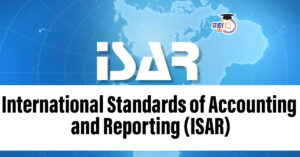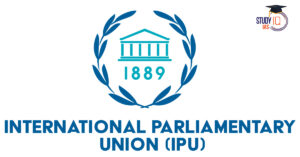Table of Contents
United Nations Development Programme
The United Nations Development Programme (UNDP) stands as a beacon of global cooperation and progress, working tirelessly to address pressing development challenges around the world. As one of the largest international development organizations, the UNDP operates in numerous countries, partnering with governments, communities, and stakeholders to foster sustainable and inclusive development.
With its unwavering commitment to eradicating poverty, reducing inequality, and promoting environmental sustainability, the UNDP plays a pivotal role in shaping nations’ future and improving individuals’ well-being. Through its diverse portfolio of projects and initiatives, the UNDP strives to create a better and more equitable world for all.
Read about: G7 Countries
UNDP Establishment
The United Nations Development Programme (UNDP) was established on January 1, 1966, following a resolution by the United Nations General Assembly. UNDP is a leading global development organization. It is part of the United Nations system and works in collaboration with countries to address key development challenges and achieve sustainable development goals.
UNDP Objectives
The UNDP focuses on promoting inclusive growth, eradicating poverty, advancing democratic governance, protecting the environment, and advocating for gender equality. Its comprehensive approach integrates economic, social, and environmental dimensions of development to create a more prosperous and equitable world.
Headquarters of UNDP
The headquarters of UNDP is located in New York City, United States. Situated within the United Nations headquarters complex, it serves as the central hub for coordinating and implementing UNDP’s programs and initiatives worldwide. The New York headquarters plays a critical role in policy formulation, strategic planning, resource mobilization, and global coordination of UNDP’s activities.
As a United Nations agency, UNDP has a broad membership that includes 170 member countries. These member countries actively engage with UNDP in shaping policies, setting development priorities, and providing financial support. Through the United Nations General Assembly, member countries contribute to the decision-making processes, strategic direction, and governance structures of UNDP. This collective membership ensures a diverse representation of nations and fosters collaboration in addressing development challenges on a global scale.
Read about: BIMSTEC Countries
UNDP Functions
The United Nations Development Programme (UNDP) performs a range of functions aimed at advancing sustainable development and improving the well-being of people worldwide. Some key functions of UNDP include:
Policy Advice and Advocacy
UNDP provides policy advice and support to governments, helping them formulate and implement strategies for sustainable development. It conducts research, analysis, and policy dialogue to address social, economic, and environmental challenges.
Program Development and Implementation
UNDP designs and implements development programs and projects in collaboration with partner countries. These initiatives focus on various areas such as poverty reduction, inclusive economic growth, environmental sustainability, governance, and gender equality.
Capacity Development
UNDP assists countries in building their capacity to address development challenges effectively. This involves providing technical expertise, training, and knowledge-sharing to strengthen institutions, improve governance systems, and enhance the skills of individuals and communities.
Crisis Prevention and Recovery
UNDP supports countries in preventing and recovering from crises, including conflicts, natural disasters, and humanitarian emergencies. It works to rebuild infrastructure, promote social cohesion, and restore livelihoods to enable sustainable recovery.
Sustainable Development Goals (SDGs)
UNDP plays a crucial role in supporting countries’ efforts to achieve the Sustainable Development Goals, which include targets for poverty eradication, quality education, clean energy, gender equality, and environmental sustainability. UNDP provides guidance, resources, and technical assistance to align national development plans with the SDGs.
Partnerships and Coordination
UNDP collaborates with a wide range of partners, including governments, civil society organizations, private sector entities, and other United Nations agencies. It fosters partnerships to leverage resources, share knowledge, and coordinate actions for more impactful development interventions.
Knowledge Sharing and Innovation
UNDP promotes knowledge sharing, innovation, and best practices in development. It facilitates the exchange of experiences and lessons learned across countries, supports research and analysis, and promotes innovative solutions to address development challenges.
Read about: NATO Countries
United Nations Development Programme Reports
The United Nations Development Programme (UNDP) publishes a range of reports that provide valuable insights into global development trends, challenges, and opportunities. These reports offer comprehensive analyses of various aspects of human development, gender equality, sustainable development goals, regional development issues, and more.
Through rigorous research and data-driven assessments, these reports contribute to informed policy debates, guide development strategies, and facilitate progress towards achieving a more equitable and sustainable world. Here is a table that takes a look at these reports.
| Report Name | Details |
| Human Development Report | Provides a comprehensive analysis of human development indicators and highlights progress and challenges worldwide. |
| Gender Inequality Index Report | Examines gender disparities and inequalities across various dimensions, providing insights for promoting gender equality. |
| Sustainable Development Goals Report | Tracks progress towards achieving Sustainable Development Goals and serve as a global reference for sustainable development efforts. |
| Arab Human Development Report | Focuses on development challenges specific to the Arab region, offering policy recommendations and solutions. |
| Human Development Index Report | Ranks countries based on their human development performance, measuring indicators such as life expectancy, education, and income. |
| World Development Report | Explores emerging development trends, challenges, and opportunities, informing policy debates and decision-making. |
| Global Human Development Report | Offers an overview of human development progress and trends at the global level, guiding development strategies and policies. |
| Inequality-adjusted Human Development Report | Takes into account inequality factors while assessing human development, providing a more nuanced understanding of development outcomes. |
| Regional Human Development Reports | Address specific development issues and priorities in different regions, providing tailored recommendations and analysis. |
| National Human Development Reports | Produced by individual countries, these reports focus on national development priorities and challenges, informing policy formulation and implementation at the country level. |
Read about: International Organizations and their Headquarters
UNDP and India
The relationship between India and the United Nations Development Programme (UNDP) has a long history and holds significant importance in the development landscape.
India’s association with the UNDP dates back to its inception in 1965. Since then, India has been an active partner and beneficiary of UNDP’s development programs and initiatives. The collaboration between India and the UNDP has evolved and strengthened over the years, covering various areas of development, policy formulation, capacity building, and technical assistance.
Importance of India and UNDP Relationship
- Sustainable Development Goals (SDGs): The UNDP and India have collaborated to align national policies and programs with the SDGs. For instance, in achieving SDG 5 (Gender Equality), the UNDP has supported India’s efforts to empower women and promote gender equality through initiatives such as the National Rural Livelihoods Mission and the Mahila Police Volunteer Scheme.
- Climate Change and Renewable Energy: India has partnered with the UNDP in addressing climate change and promoting clean energy. One notable example is the partnership in the implementation of the National Cyclone Risk Mitigation Project, which aims to reduce vulnerability to cyclones in coastal areas through infrastructure development and community-based disaster management.
- Human Development Index (HDI): The UNDP’s Human Development Reports have played a vital role in assessing India’s progress in key areas such as education, healthcare, and income. The reports provide a comprehensive analysis of human development indicators, assisting the Indian government in policy formulation and decision-making.
- Capacity Building and Governance: The UNDP has worked closely with India in strengthening institutions, building capacities, and enhancing governance frameworks. Through initiatives like the Strengthening Capacities for Local Governance (SCLG) program, the UNDP has supported India’s efforts in decentralization and empowering local governments to deliver efficient and inclusive services.
- Poverty Alleviation and Livelihoods: The UNDP has collaborated with India on poverty reduction and livelihood enhancement programs. An example is the partnership in implementing the National Rural Livelihoods Mission, which aims to empower rural communities, promote sustainable livelihoods, and reduce poverty.
Read about: Countries and Capitals
United Nations Development Programme UPSC
The topic of UNDP is crucial for UPSC preparation as it aligns with the UPSC syllabus, particularly in areas related to international organizations, global development, and sustainable development goals. Understanding the role, functions, and initiatives of UNDP is essential for aspirants seeking comprehensive knowledge of global affairs and development issues. Studying UNDP’s reports, programs, and policies will help candidates analyze socio-economic challenges, formulate effective strategies, and tackle questions related to international relations and development in UPSC exams. Utilizing UPSC Online Coaching and UPSC Mock Tests can further enhance candidates’ understanding and application of UNDP-related concepts in the exam context.
Read about: European Union


 Ambedkar Jayanti 2025: Biography, Legacy...
Ambedkar Jayanti 2025: Biography, Legacy...
 International Standards of Accounting an...
International Standards of Accounting an...
 150th Summit of Inter-Parliamentary Unio...
150th Summit of Inter-Parliamentary Unio...





















